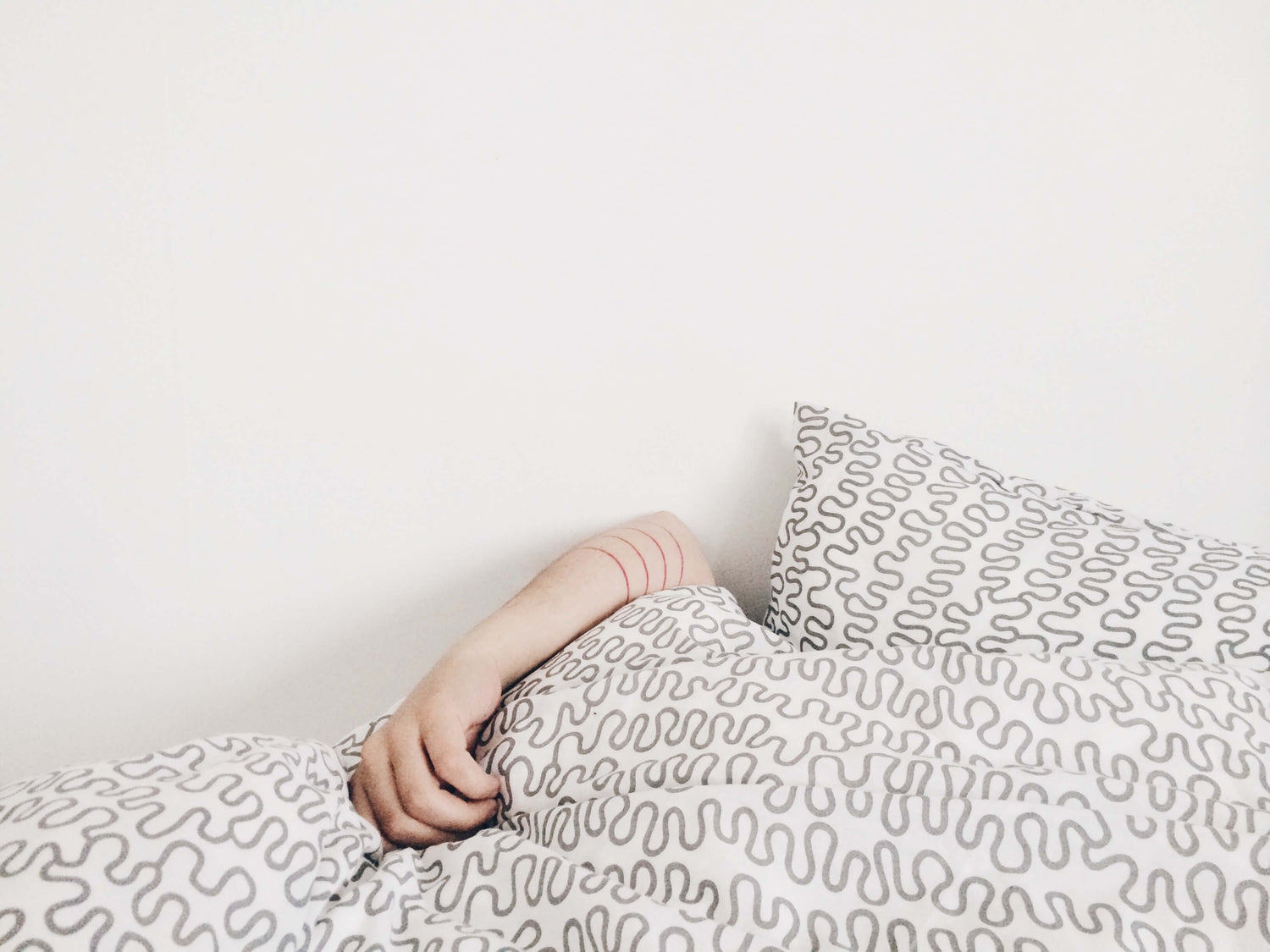
How To Improve Sleep Quality Naturally: Our Top Tips
Anyone who has ever tried to get in a good day’s work after a terrible night’s sleep will attest to the importance of sleep quality. It isn’t just your mood and energy levels that suffer- people who aren’t able to get good quality shut-eye on a regular basis will find themselves vulnerable to a whole host of health problems, putting both your physical and mental health at risk. Long-term, these issues include weight gain and a weakened immune system.
Just because a good night’s sleep doesn’t come easily to you, doesn’t mean it’s impossible to achieve. Experts refer to our routines and habits surrounding sleep as ‘sleep hygiene’, and are able to offer many suggestions for improving it. Just like you would change up a skincare routine or oral hygiene plan if it’s no longer working for you, you can incorporate these helpful tips to improve your sleep hygiene naturally.
Losing Out On Good Quality Sleep?
Everyone has restless nights. If you occasionally stay up late or have trouble drifting off, that’s nothing to get anxious about. However, if you find yourself unable to sleep on a regular basis, or often wake up multiple times in the night, you may need some tips for sleeping better.
Experts generally recommend between 7-9 hours of sleep per night for most adults. Of course, this can change according to your needs and preferences.
If you aren’t getting enough sleep, you may feel dull, unproductive, exhausted, and less capable of creative or even ethical thinking.
Easy Ways To Improve Sleep Naturally
In an effort to ensure a good night’s sleep, many people turn to over-the-counter remedies like melatonin capsules or prescription sleeping pills. Unfortunately, many of these types of medications carry adverse side effects and can stop working as you eventually build up a tolerance for them.
Fortunately, there are lots of ways you can improve your sleep naturally without resorting to medication. If you’re wondering how to improve your sleep, these sleeping tips are a great place to start.
Avoid Caffeine
There’s a reason why many people start their morning with a cup of coffee or tea. It’s a stimulant that’s great for helping people feel more awake and alert. Unfortunately, this adversely affects your sleep. Make sure to avoid all caffeine, including coffee, soda, tea, and energy drinks for 4-6 hours before you plan to sleep.
If you want a nightcap, reach for a soothing cup of caffeine-free herbal tea, or a refreshing glass of cold water with lemon.
Create A Great Sleep Environment
Your bedroom should be a sanctuary that invites a restful slumber. A mattress of just the right firmness, supportive pillows, and curtains that block outdoor light are all essential.
Although you may love falling asleep in a cozily warm room, a temperature of between 15-23°C is actually preferable for a more restful sleep. Many people choose to remove distractions like work materials, TVs, and other electronic devices from the bedroom to help their body transition more easily into sleep.
Have A Pre-Sleep Routine
A great pre-sleep routine helps your body understand that it’s time for bed. Many people wind down for sleep by sipping a cup of herbal tea, taking a warm bath or shower, meditating, or reflecting on their day through journaling.
Even if you find them enjoyable, steer clear of stimulating activities like working, playing video games, or cooking right before bed. This helps ensure your body doesn’t excrete too much cortisol, a stress hormone that can increase alertness.
Use Natural Light To Your Advantage
Exposing yourself to natural light during the day helps to regulate your body clock, so make sure you’re getting plenty of sunlight during the day when it’s available. If you work in a windowless office, step outside once or twice a day, even for a few minutes.
Exercise Early
In addition to natural light, exercise also helps regulate our internal body clock. However, it can also be extremely stimulating, which is why it’s ideal to exercise earlier in the day.
This gives our bodies time to process the cortisol released during our workout, leaving us more relaxed and tired at the end of the day.
Avoid Digital Screens
Although digital screens are useful, most doctors recommend they stay out of the bedroom. This is because the blue light they emit can be perceived by our brain as sunlight, causing it to send signals to our body clock to prepare for the day ahead.
The constant stream of notifications can also be extremely detrimental to sleep, causing us to remain awake for longer as we wait for the next ping.
The Importance Of Improving Sleep Quality
Improving your sleep quality is an extremely important step on the road to good health. If you’re constantly exhausted due to lack of good quality sleep, it can affect every aspect of your life, from personal relationships to work performance.
If you’re worried that your poor quality sleep may be due to an underlying sleep disorder or health problem, it’s a good idea to consult a doctor immediately. Worried that sleep apnea may be a culprit? Call us today and our CPA experts will be able to guide you through any questions you have regarding sleep apnea treatment.

Leave a comment